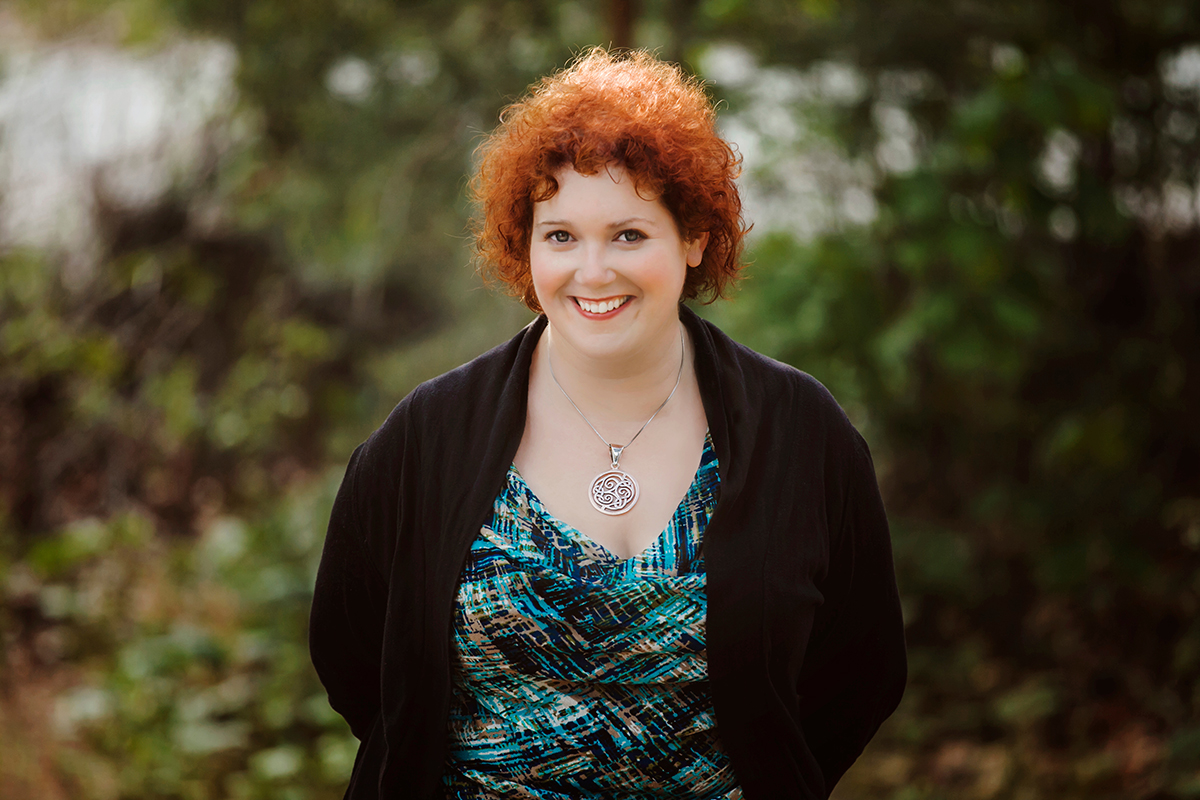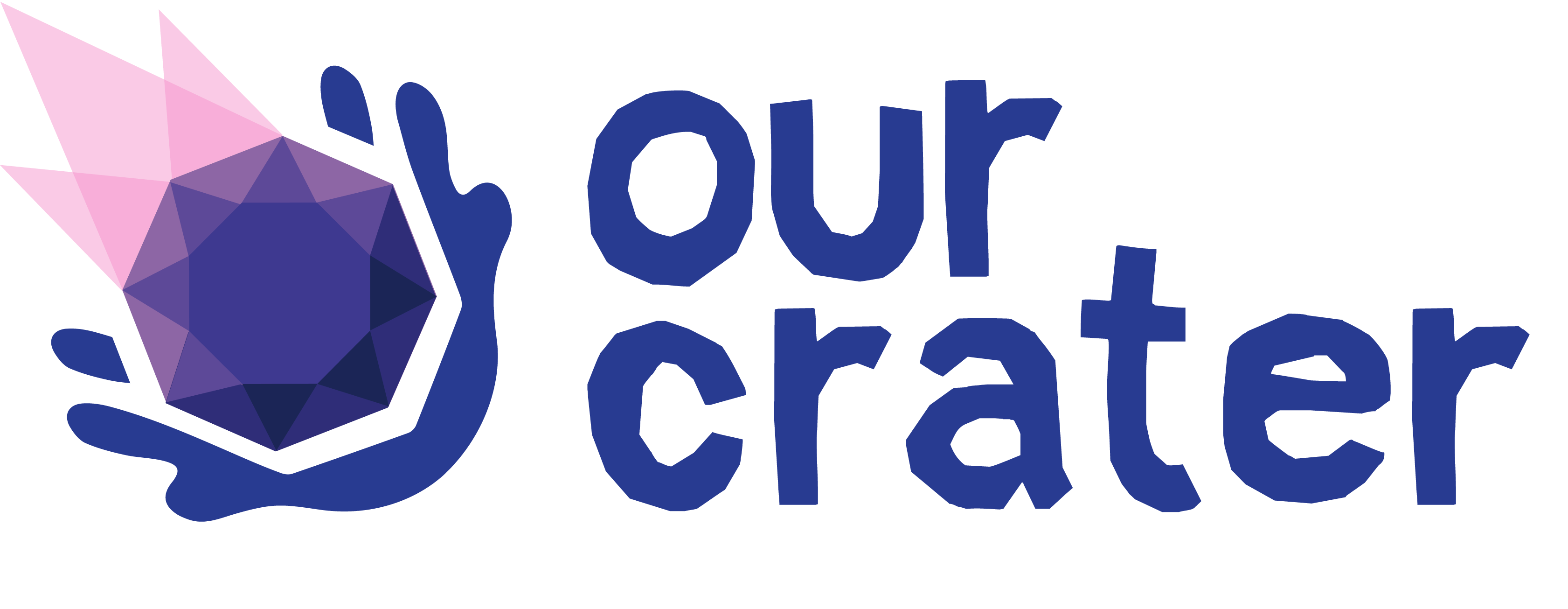Our New Poet Laureate Shared Her Story

On March 21, it was announced that Kim Fahner was named Sudbury’s fourth poet laureate. She is also our first female laureate! Kim is well known throughout the community as both a published author and English teacher at Marymount Academy. We were fortunate enough to have the chance to talk with Kim about her love for poetry, her plans as poet laureate, her upcoming novel, and where you can read her published work!
First off, we must say congratulations! What does being Sudbury’s poet laureate mean to you?
Being named the fourth poet laureate of Greater Sudbury, and the first woman appointed to the role, is a great honour. For me, it’s the logical next step in my literary career. I’ve been writing poems my whole life, since I was a little girl, but only really started seriously writing and publishing my poetry in my early twenties.
Being laureate means that I can speak more publicly about how I think of poetry as a transformative force in our community’s culture. If I can encourage people to read and write more poetry, and even to think of poetry in a more accessible and friendly way, then I will be pleased with my work at the end of my term. The arts–visual, musical, theatrical, and literary–are key to the way in which I live my life, so I hope to link various aspects of Sudbury’s arts community together. I also see the laureate position as being one through which I can advocate for literacy initiatives and encourage parents to read to their children.
Where did your interest and love for poetry originally come from?
I remember that my parents were always reading when I was growing up; they modelled good reading practices without even knowing they were doing so. They also read to my sister and me, and then encouraged us to read out loud to them. Reading was a way in which to fill time in a creative and intelligent way, often being the last thing we did before we went to sleep at night. It was valued and honoured in our house. I’m grateful that my parents taught us how to value the silent and imaginative spaces that reading allows us to access as humans. It really resulted in me being an avid reader and then a creative writer.
When I look back, I can see that I was enormously encouraged in my writing career by my mother’s Irish family. It was a huge extended network of people who loved stories and songs. Irish ballads are long poems, in effect, set to music. The oral tradition of storytelling was also key to my growing up. I grew up listening to stories about my family’s Irish heritage, as well as being transfixed by stories of history. Songs were also an important part of family connections. I was, really, steeped in a tradition of storytelling and have only my mother’s family to thank for that great gift.
My love of poetry came through my great-aunts, one of whom in particular—Norah Kelly– introduced me to the work of the Irish poet, W.B. Yeats, when she read “The Lake Isle of Innisfree” to me one night after supper. I fell in love with his words.
My father often recited Shakespeare to me, in an overdramatic fashion, but also loved to regale us with anything written by Robert Service. He particularly loved reciting “The Cremation of Sam McGee,” and I often read it when I miss him so that I can try and hear his voice in my head. For me, poems reflect particular times and memories in my life. I’ve always seen the world through a poet’s eyes, so it’s hard to explain what it’s like, but I’m lucky and blessed to feel connected to the world in such a creative and organic way.

Kim Fahner attended the Historical Fiction Intensive at the Banff Centre in April 2016, led by noted Canadian writer, Lawrence Hill
Photo by Don Lee
Is this a goal that you have been working towards? What do you hope to accomplish as poet laureate?
Yes, I’ve been working towards it for a while now. Previous to this, the timing was never right. My parents were ill when I was in my thirties, so I was caring for them, and then advocating for their care in the health system, and I was dealing with my own struggle with depression. It was a difficult decade or so. Now, I’m at a place where I can give myself completely to my writing. It feels good.
I hope to work with organizations that I care deeply about. I want to partner with the Northern Initiative for Social Action (NISA) and raise the profile of how writing can help people deal with mental health issues and challenges. I also want to work with the Art Gallery of Sudbury, in considering how visual art plays an important role in the ekphrastic poetry I tend to write. Beyond that, I hope to work in the areas of palliative and hospice care, in seeing how poetry can lift people up during difficult times.
Finally, I hope to extend the notion of poetry as being a ‘transformative mode of transportation’ by bringing snippets of Sudbury poetry into the airport. In my mind, the airport is a place of departures and arrivals, a place where metaphor might be rooted in a practical way, in words.
Who are your literary influences, and where do you find inspiration for your work?
Poetically, my influences include W.B. Yeats, Seamus Heaney, Patrick Kavanagh, Billy Collins, Bronwen Wallace, Margaret Atwood, Michael Ondaatje, and Mary Oliver. There are many others, but this core of poets has constantly inspired me with their work.
In terms of fiction, I worked with the late Timothy Findley in the 1990s, through the Humber School for Writers. He was my first mentor. I’ve also been blessed, more recently, to work with Marnie Woodrow and Lawrence Hill as mentors on my first novel.
I find inspiration for my work in the landscapes around me. I love to travel, so I often find myself getting inspired while I’m out of my own comfort zone. The pieces I write, though, so often embody the beauty of Sudbury and Northern Ontario. Life experiences, too, play a key role in my poetic creation. As well, I’m fond of using visual art to create ekphrastic poetry, and most recently I’ve been working on a series of poems inspired by the works of Mary Pratt, Georgia O’Keefe, and Alex Colville.
We know that you are a published poet, author, and playwright. Where can we find a copy of your work?
People can buy my book, The Narcoleptic Madonna, via my publisher, Penumbra Press. The URL is: http://www.penumbrapress.com/
Do you have any upcoming plans on publishing more poetry or novels in the near future?
I’ve got about another thirty pieces or so to write for my upcoming book of poems, and they should be completed and polished by late June. I’m headed to Moniack Mhor, Scotland’s Creative Writing Centre, in July, to finish sequencing the collection with noted Scottish and English poets, John Glenday, Anne MacLeod, and Jen Hadfield. Then I’ll be searching for a publisher, with hopes to publish it in either Fall 2016 or Spring 2017.
My goal is to try and finish the first draft of my novel, tentatively titled The Donoghue Girl, by early June. There will be other drafts to follow, of course, and then I’ll see where I go with it. The process is time consuming. You want to be sure you don’t rush the writing of a novel. It’s a long, careful undertaking, and I want to be true to the stories and voices of the characters. I’m aware, though, of the need to get the story done before I return to teaching in September.
Recommended Posts

CINEFEST IS BACK AT IT WITH HYBRID FESTIVAL
September 16, 2021

NLFB 49.5 TO KICK START FALL AT BELL PARK WITH DAN MANGAN, JEREMY DUTCHER, AND MORE
September 07, 2021

YES THEATRE LIGHTS UP THE GROTTO WITH LIVE CONCERT SERIES
August 30, 2021

